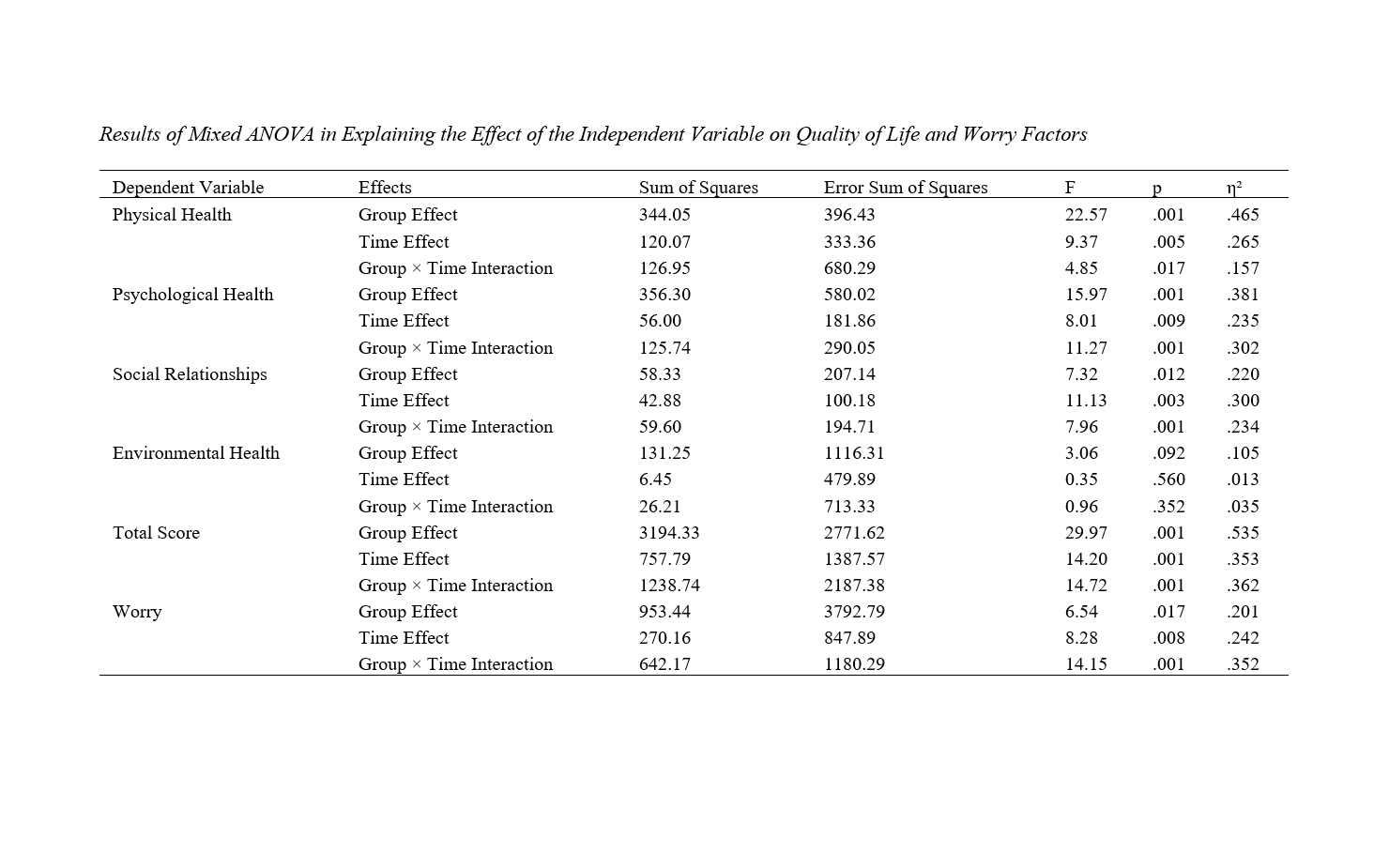Investigating the Effectiveness of an Intervention Protocol Based on Grounded Theory on the Quality of Life and Worry of Patients with Irritable Bowel Syndrome
Keywords:
Irritable Bowel Syndrome, Quality of Life, Grounded Theory, WorryAbstract
The present study aimed to investigate the effectiveness of an intervention protocol based on grounded theory on the quality of life and worry of patients with irritable bowel syndrome (IBS). The research method of the present study was mixed-methods, implemented in an exploratory design with a two-phase sequential strategy. The qualitative part of the research, considering its grounded theory basis, was phenomenological based on the Strauss and Corbin (1997) theory. The quantitative part employed a quasi-experimental method with a pretest-posttest control group design and a 2-month follow-up phase. The qualitative study population included books, articles, and theses in the field of IBS patients, and IBS patients visiting the Rāh-e Ehyā Psychiatry Clinic, Shahid Tajrish Hospital, and Behboud Gastroenterology Clinic in Tehran during the fall and winter of 2022. The quantitative study population consisted of all IBS patients visiting the Rāh-e Ehyā Psychiatry Clinic, Shahid Tajrish Hospital, and Behboud Gastroenterology Clinic in Tehran during the fall and winter of 2022. In the quantitative part, 28 IBS patients meeting the inclusion criteria were randomly assigned to either the control or experimental groups. Worry was measured using the Penn State Worry Scale. After eight intervention sessions, the research data were analyzed using repeated measures ANOVA and SPSS software, with a significance level of 0.05. The interaction effect of group×time for the components of physical health (η² = 0.157, P = 0.017, F = 4.85), psychological health (η² = 0.302, P = 0.001, F = 11.27), social health (η² = 0.234, P = 0.001, F = 7.96), and total quality of life score (η² = 0.362, P = 0.001, F = 14.72) was significant. Additionally, the effect of the independent variable on worry (η² = 0.352, P = 0.001, F = 14.15) was significant. The results indicated that the intervention protocol designed based on grounded theory is effective in improving the quality of life and reducing worry in patients with irritable bowel syndrome.
Downloads

Downloads
Additional Files
Published
License
Copyright (c) 2024 Yasaman Ghorbani Ashin (Author); Mohammadreza Seirafi (Corresponding Author); Khadijeh Abolmaali Alhosseini, Morvarid Ahadi (Author)

This work is licensed under a Creative Commons Attribution-NonCommercial 4.0 International License.

























